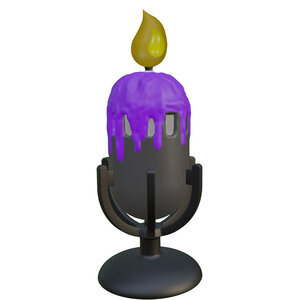Demasking the Torture of Julian Assange (English)
listen in soundcloud
listen on spotify
watch it on troo.tube (Peertube)
watch it on youtube
interview source: café Weltschmerz
In 1948 the United Nations adopted the universal declaration of human rights.
Article 5: ‘No one shall be subjected to torture or to cruel, inhuman or degrading treatment or punishment’. The United Nations had promise back then as it succeeded the failed League of Nations in 1945,and the world just came out of World War II. In 1984 the United Nations Convention against Torture was adopted and ratified. Also in the UK, the US, Ecuador and Sweden.
published earlier on Café Weltschmerz:
the United Nations Rapporteur for torture, Nils Melzer, in 2019 reports that Julian Assange is being tortured in a concerted and prolonged defamation campaign by the UK, US, Sweden and Ecuador. In café Weltschmerz Rico Brouwer interviews Nils Melzer who's visited Assange in Belmarsh prison. He asks him how Assange is doing and what's up with the rule of law in our nations? Melzer: 'to me this is a real test for these countries, for the West. As to whether they take the legacy of the second world war and the human rights treaties that they have established and that guarantee fair trial, that guarantee freedom of the press, that guarantee the prohibition of torturable treatment. They established the United Nations and mandated people like me to observe these rights. If they don’t take these United Nations reports seriously, then it really puts into question the validity of the commitment of these states to human rights’. He continues: ‘If the US acted in good faith, they would have investigated the crimes that were exposed by WikiLeaks and prosecuted the torture and the murder and so on that was exposed, and the corruption. Nothing of that happened. But the Whistle-blower that leaked the information and the journalist that published, these were the people that were prosecuted’.
‘Clearly it seems that they want to make an example of him, and to make sure that what he has been doing is not going to be imitated by others. Because somehow you can manage one WikiLeaks and one Julian Assange, but if you have ten thousand of these organisations and journalists popping up that use the internet so effectively to expose secret information, that obviously would no longer be manageable for these states and it could really change the way that world affairs are being conducted very fundamentally. And that’s what these states are afraid of’.
‘If we allow this precedent to be set, that states can do that, that they can prosecute journalists for exposing true information about crimes committed by Government officials, if that becomes a crime, and these officials are not prosecuted, then we really no longer have the rule of law’.
further reading:
Press release United Nations Human Rights Office of the High Commissioner: https://ohchr.org/en/NewsEvents/Pages/DisplayNews.aspx?NewsID=24665&LangID=E
Melzer personal blogpost (1) https://medium.com/@njmelzer/demasking-the-torture-of-julian-assange-b252ffdcb768
Melzer personal blogpost (2) https://medium.com/@njmelzer/response-to-open-letter-of-1-july-2019-7222083dafc8
Melzer in Newsweek: https://www.newsweek.com/assange-freedom-dissent-torture-1447756
analyses of law in Sweden, illustrated by Assange case https://voelkerrechtsblog.org/setting-the-record-straight-how-detention-and-indictment-works-in-sweden-as-illustrated-by-the-assange-case/
FOIA by Repubblica (1) https://www.repubblica.it/esteri/2018/02/13/news/few_documents_many_mysteries_how_our_foia_case_is_unveiling_the_questionable_handling_of_the_julian_assange_case-188758273/
FOIA by Repubblica (2) https://www.repubblica.it/esteri/2019/06/29/news/wikileaks_london_court_to_decide_on_assange_documentation_access-229911906/?ref=RHRS-BH-I0-C6-P5-S1.6-T1
Dutch press article: https://www.metronieuws.nl/in-het-nieuws/2019/05/vn-rapporteur-assange-is-psychisch-gemarteld
Interview with Naomi Colvin, on the arrest of Assange from the Ecuadorian Embassy https://potkaars.nl/blog/2019/4/17/naomi-colvin-whistleblower-advocate-on-julian-assange-and-whistleblower-protection
Naomi Wolf; problems with the case in Sweden http://markcrispinmiller.com/2011/02/eight-big-problems-with-the-case-against-assange-must-read-by-naomi-wolf/
Mandate for the rapporteur for torture https://documents-dds-ny.un.org/doc/UNDOC/GEN/G17/086/68/PDF/G1708668.pdf
UN Rapporteur on Torture’s Letters to UK, Ecuador, US and Sweden
